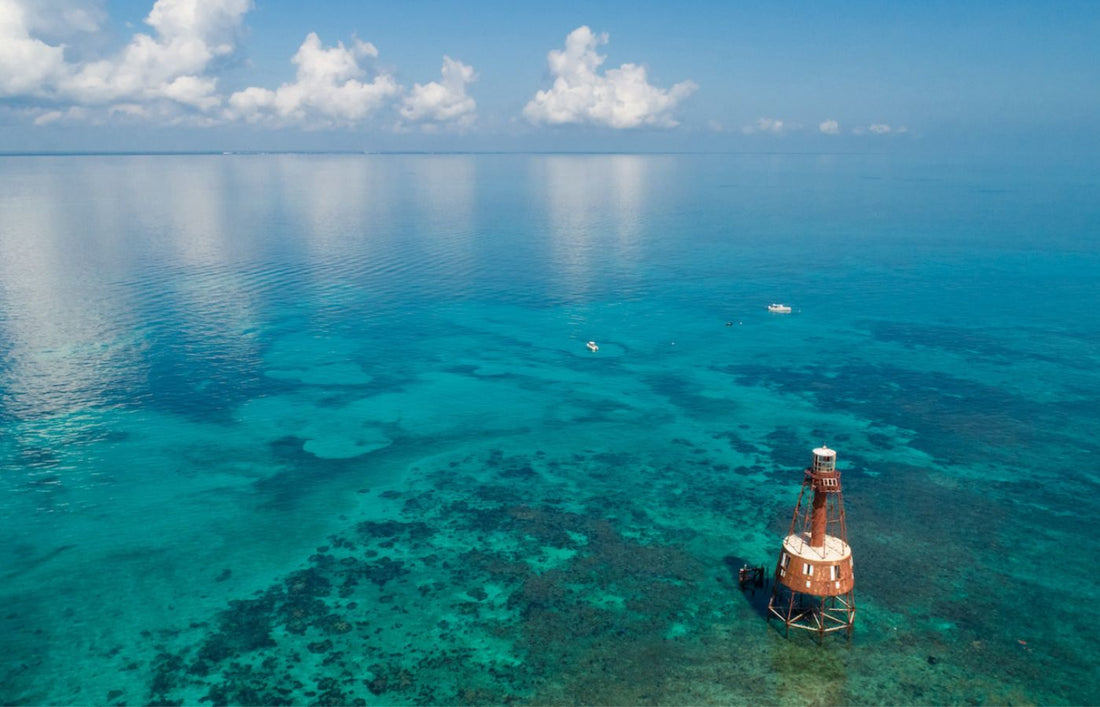Hero versus villain is the plot of some of the greatest stories ever told. We have this natural inclination to root for the hero; to see the good guys save the day so the world can live in peace and harmony. While heroes come in many different forms, there’s one that is constantly fighting to keep us safe, provide food, and support our economy: the intrepid coral reef.
According to NOAA, about 25% of all marine species are found in, on, or around coral reefs, while one billion people depend on the reef for food, income, and protection. That’s a lot of responsibility! And while the reef does its best to help us, it needs our support to continue being a force of nature.
Let’s dive into the importance of coral reefs and what you can do to protect them.
The reef provides coastal protection

Barrier reefs, such as the Florida Reef or the Great Barrier Reef, quite literally live up to their name. They act as a barrier that protects the shoreline from floods and storms. By reducing storm wave energy by 97%, the reef does its best to prevent erosion and prevent property damage to coastal communities.
When it comes to protecting marine life, the barrier reef acts as a buffer against currents and waves, stabilizing important habitats such as seagrass beds and mangroves. It’s kind of like having our own force field to protect against the bad guys.
The reef supports jobs and tourism

If you’ve ever been snorkeling or scuba diving, you may notice that fish (and other marine life) love hanging out around coral reefs. That’s because the reef provides food and protection for marine life. It’s their home.
According to the National Ocean Service, coral reefs pump more than $3.4 billion into the U.S. economy. That’s great for local industries and communities! When you travel to a tropical destination like Key West, your blackened snapper sandwich, scuba diving tour, or recreational fishing trip wouldn’t be possible without a healthy coral reef.
The reef facilitates advances in medicine

Did you know that the antiviral drugs Ara-A and AZT and the anticancer agent Ara-C were developed from sponges found on the reef? Not only does the reef provide protection and economic support, but it also contributes to advances in medicine.
Many of the organisms that are found on the reef are responsible for advancements in research and treatment for cancer, bacterial infections, cardiovascular disease, and more. That’s pretty badass. As researchers continue to learn about the reef, there is potential for continued medical breakthroughs in the future.
The reef cleans our oceans

The reef is doing something humans struggle to practice: they are cleaning our oceans. Sponges are filter feeders; they consume particles in the sea and therefore enhance the clarity of the water. So you can tip your hat to the reef for that teal blue, crystal clear water that makes you feel all the feels.
Coral also has a symbiotic (yet complicated) relationship with zooxanthellae algae. In exchange for a home, the algae photosynthesize and pass the nutrients to the coral while also removing carbon dioxide from the ocean. It’s a hero/villain duo that’s similar to Thor and Loki.
Threats to the reef

Every hero has a villain. And in the case of the reef, it’s us. Whether we mean to be or not, humans are the biggest threat to coral reefs. Although, storms, predators, and diseases are also dangerous.
Pollution that spills into the water from land (microplastics, trash, toxic substances, sedimentation, pathogens, etc) damages the reef and harms marine life. When we dump things into the ocean that aren’t naturally meant to be in there, it interferes with the corals' ability to feed, grow, or reproduce. Kind of like when we get sick from a virus.
On the other hand, overfishing and destructive fishing practices reduce the number of fish that graze on the corals, which keeps the reef clean of algae overgrowth. The reef is also destroyed when coral heads, conchs, shells, or fish are collected for jewelry or aquariums (also known as coral harvesting). That’s why it’s important to never touch the coral or marine life when snorkeling or scuba diving — it’s beautiful yet fragile.
How to protect the reef

Heroes need protection too, and there are a number of ways that humans can help preserve the reef.
- Avoid touching coral or anchoring at coral reefs. As the saying goes, “take only memories, leave only bubbles.”
- Wear reef-safe sunscreen. Before lathering up, check to see that your sunscreen is free from oxybenzone and octinoxate. Those ingredients are toxic to corals.
- Leave no trace when at the beach or on the boat. Do your best to fight pollution by cleaning up after yourself and others.
- When possible, practice responsible tourism — which aims to minimize and reverse the negative effects of travel such as overcrowding, environmental destruction, globalization, and more.
- Education is a powerful tool. If you’re curious about how to protect the reef, get involved with organizations such as Reef Relief, which offer programs, camps, education, and volunteer opportunities to fight the bad guys and save coral reef ecosystems.

Grateful Diver and Grateful Angler are committed to marine conservation via active outreach. A portion of each purchase goes to Reef Relief's efforts to save the reef. With your help, we can make giant strides to help educate individuals about the importance of environmental conservation and to preserve the environment around us. Together, we can help save our hero.

